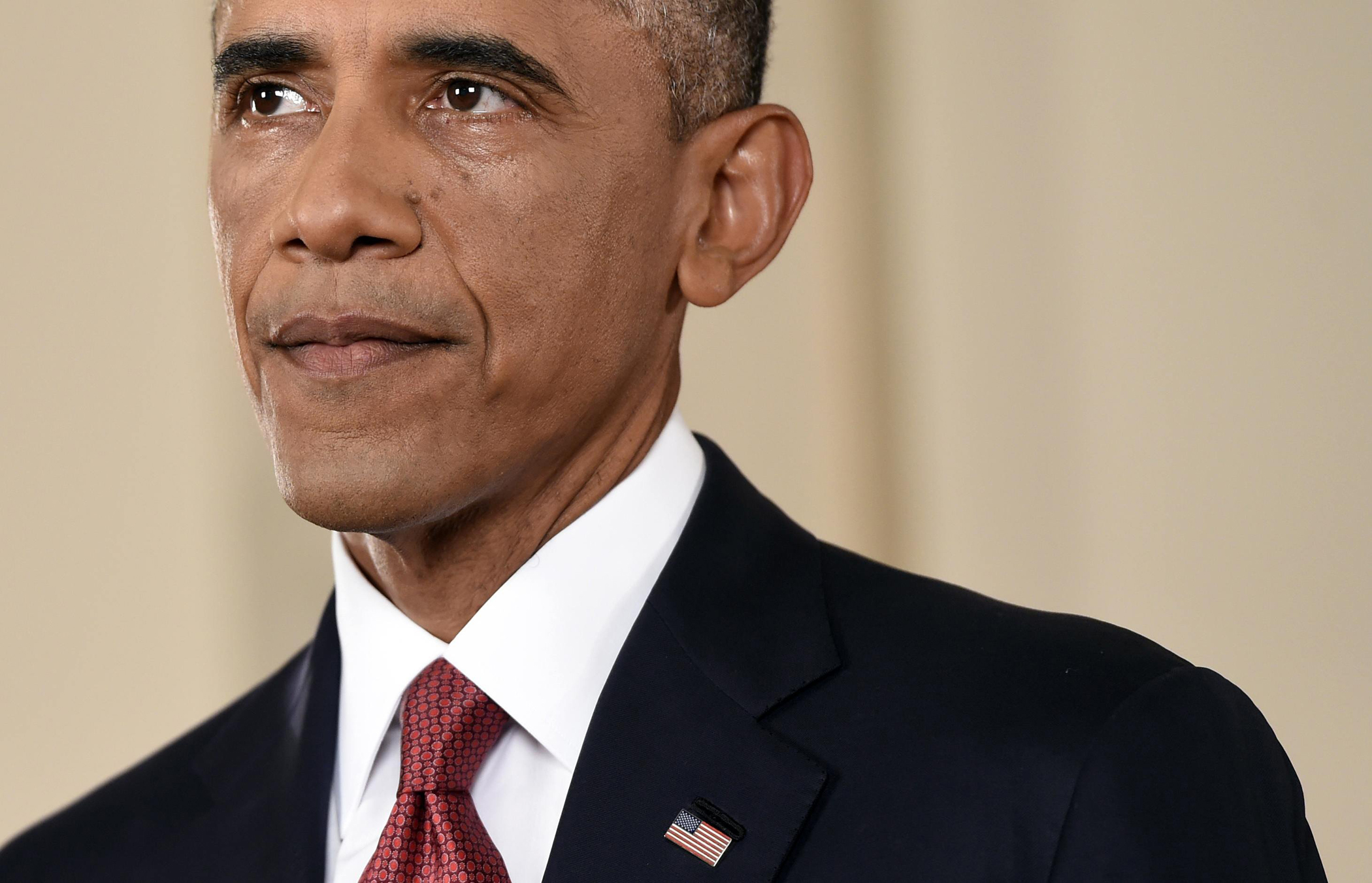
Future historians will ask why George W. Bush sought and received express congressional authorization for his wars (against al Qaeda and Iraq) and his successor did not. They will puzzle over how Barack Obama the prudent war-powers constitutionalist transformed into a matchless war-powers unilateralist. And they will wonder why he claimed to “welcome congressional support” for his new military initiative against the Islamic State but did not insist on it in order to ensure clear political and legal legitimacy for the tough battle that promised to consume his last two years in office and define his presidency.
“History has shown us time and again . . . that military action is most successful when it is authorized and supported by the Legislative branch,” candidate Barack Obama told the Boston Globe in 2007. “It is always preferable to have the informed consent of Congress prior to any military action.” President Obama has discarded these precepts. His announcement that he will expand the use of military force against the Islamic State without the need for new congressional consent marks his latest adventure in unilateralism and cements an astonishing legacy of expanding presidential war powers.
The legacy began in 2011 with the seven-month air war in Libya. President Obama relied only on his Commander in Chief powers when he ordered U.S. forces to join NATO allies in thousands of air strikes that killed thousands of people and effected regime change. His lawyers argued beyond precedent that the large-scale air attacks did not amount to “War” that required congressional approval. They also blew a large hole in the War Powers Resolution based on the unconvincing claim that the Libya strikes were not “hostilities” that would have required compliance with the law.
Although he backed down from his threat to invade Syria last summer, President Obama proclaimed then the power to use unilateral force for purely humanitarian ends without congressional or United Nations or NATO support. This novel theory, which removed all practical limits on presidential humanitarian intervention, became a reality in last month’s military strikes to protect civilians trapped on Mount Sinjar and in the town of Amirli.
Yesterday’s announcement of a ramped-up war against the Islamic State in Iraq and possibly Syria rests on yet another novel war powers theory. The administration has said since August that air strikes in Syria were justified under his constitutional power alone. But yesterday it switched course and maintained that Congress had authorized the 2014 campaign against the Islamic State in the 2001 law that President George W. Bush sought to fight the Taliban and al Qaeda.
The administration’s new approach allows it to claim that it is acting with congressional approval. It also lets it avoid the strictures of the War Powers Resolution because that law does not apply to wars approved by Congress.
The problem with this approach is that its premise is unconvincing. The 2001 law authorized force against al Qaeda and its associates. The Islamic State once had associations with al Qaeda, but earlier this year al Qaeda expelled it and broke off ties. The administration nonetheless insists that the 2001 law applies to its new military action, primarily because the Islamic State claims to be “the true inheritor of Usama bin Laden’s legacy” and is supported by “some individual members and factions of [al-Qaeda]-aligned groups.” But if this remarkably loose affiliation with al Qaeda brings a terrorist organization under the 2001 law, then Congress has authorized the President to use force endlessly against practically any ambitious jihadist terrorist group that fights against the United States. The President’s gambit is, at bottom, presidential unilateralism masquerading as implausible statutory interpretation.
The largest irony here is that President Obama has long hoped to leave a legacy of repealing the Bush-era authorization and declaring the “war” against al Qaeda over. “I look forward to engaging Congress and the American people in efforts to refine, and ultimately repeal” the 2001 law’s mandate” he said in a speech last May at the National Defense University. “I will not sign laws designed to expand this mandate further,” he added, before insisting that “history” and “democracy” demand that “this war, like all wars, must end.”
President Obama never did engage Congress to refine the 2001 law. The violent reality of the Islamic State has quickly belied the supposed demands of history and democracy. And the President, all by himself, has now dramatically expanded the 2001 mandate.
Jack Goldsmith, a professor at Harvard Law School and a member of the Hoover Institution Task Force on National Security and Law, served as Assistant Attorney General in the Office of Legal Counsel, from 2003-2004, in the George W. Bush Administration.
More Must-Reads From TIME
- The 100 Most Influential People of 2024
- Coco Gauff Is Playing for Herself Now
- Scenes From Pro-Palestinian Encampments Across U.S. Universities
- 6 Compliments That Land Every Time
- If You're Dating Right Now , You're Brave: Column
- The AI That Could Heal a Divided Internet
- Fallout Is a Brilliant Model for the Future of Video Game Adaptations
- Want Weekly Recs on What to Watch, Read, and More? Sign Up for Worth Your Time
Contact us at letters@time.com